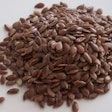I was asked to talk about maintaining my femininity while still garnering respect as a police officer. At first, I thought it was somewhat of a laughable topic. To be accepted and respected among other officers who are mostly male, we as female officers often have to leave our femininity behind.
We have to be able to get our hands dirty and jump into situations with resistive subjects to show that we aren't a liability. We have to be able to roll with the punches amid dirty jokes, flatulence, and other behaviors typically displayed in a male-dominated field. Being feminine is often seen as a hindrance as opposed to an attribute when garnering respect from male coworkers because they feel like they have to protect us instead of focus on the problem they are called to handle.
I know when I first started on my own at my first assignment that it took longer for me to be accepted than my male classmate who came with me. I could see that my coworkers were wondering if I could handle a fight, or a subject who was cussing me out calling me every name in the book, and if I could keep it together when I had a homicide.
It took me showing that I wasn't overly sensitive and that I could be tough in tough situations to get the respect that my classmate achieved simply by walking through the door on that first night of work. I think a large part of the problem here is what we, speaking for myself as well as my male counterparts, think of as feminine.
I will admit, when I think of femininity my first thoughts are of a woman's physical appearance versus a man's. They are stereotypical attributes such as a curvy body, long hair, makeup, jewelry, nail polish, dresses, and un-sensible shoes, to name a few. With a police uniform on we are set to a standard to all look somewhat alike, hence the uniform. It is a model of androgyny.
Nail polish must be natural in color, you can only wear one pair of earrings and they must be studs, and the only ring you can wear is a wedding band. The rest of your uniform consists of black boots for footwear, long pants that are usually black or navy blue and are fit for function, and a vest that flattens out any indication of a female form along with the duty belt that removes the idea that hips once existed there. If you have long hair it must be up in a ponytail or bun so that it does not fall below the collar and if it is short there is a limitation on width and style so that it is subdued and not considered "trendy."
The paramilitary mindset keeps all officers looking the same in order to make police easily identifiable to the public and looking like part of the same team, while keeping the appearance at a professional standard.
So where does being female come into play in this business? I had to rethink my idea of femininity on a deeper level that removes the physical attributes of a woman and leans toward the inherent differences of males and females in how we think and act. Of course there will be some generalization here as everyone is different but there are definitely certain behaviors that are considered more "male" or "female." I think this is where female officers can maintain their femininity while garnering the respect that their male counterparts often get just by showing up.
Attributes that are considered to be more feminine are sensitivity to others' emotions, and interpersonal skills that lead to an increased ability to communicate with others effectively. Men are generally known to be more physical and gruff as a form of communication, while females are more known to talk out their problems, leaving the physical altercations as a last resort. In part this may be due to the fact that women have to use words over physical force, as most of us don't carry the physical stature that men do giving them a more tactical advantage for fighting. But I also think that women more naturally turn to talking out a problem before jumping to physical action. This is where women shine in police work.
I can think of several runs where we have the inevitable "good cop," "bad cop" routine. The typical scenario is my male counterpart showing up to get the information he needs for the arrest or report while leaving much of the finesse behind. This can often lead to complaints or physical altercations when the person he is dealing with feels as though he or she is not being heard and becomes increasingly more agitated. Don't get me wrong, I get impatient and short with people, and have to be physical in handling people at times. But even after all is said and done, if I can talk the person down and explain what is happening to them while listening to their concerns, things seem to run more smoothly.
I don't want it to sound as if men are incompetent at communicating because that is far from the case. But I think our society as a whole looks to women for compassion and a listening ear and men for the physical protection role. I think it is extremely important to be able to handle resistors and fight when need be to keep us all safe out here. But I think that maintaining that role of being great communicators garners respect while maintaining our femininity.
Christin Rudell is an officer with the Indianapolis Metropolitan Police Department. She was recognized as the April 2012 NLEOMF Officer of the Month.


















